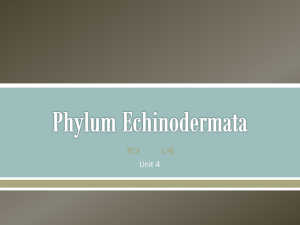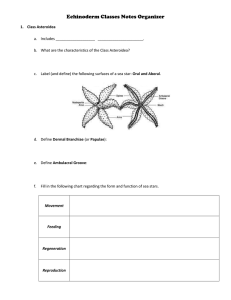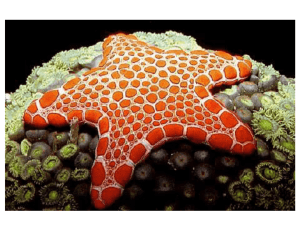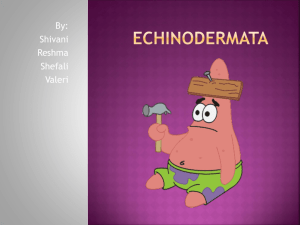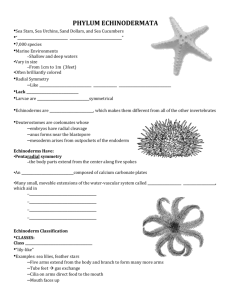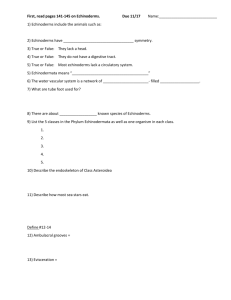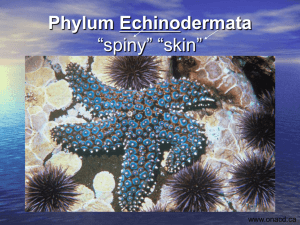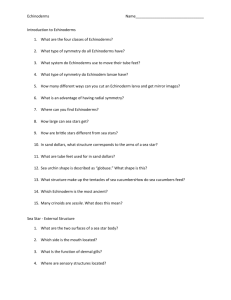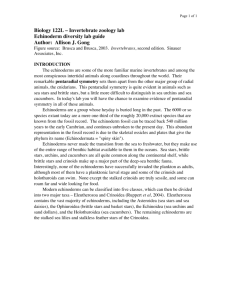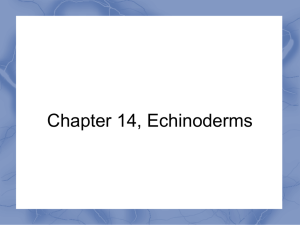Phylum Echinodermata - carterbiology2-12-1809
advertisement
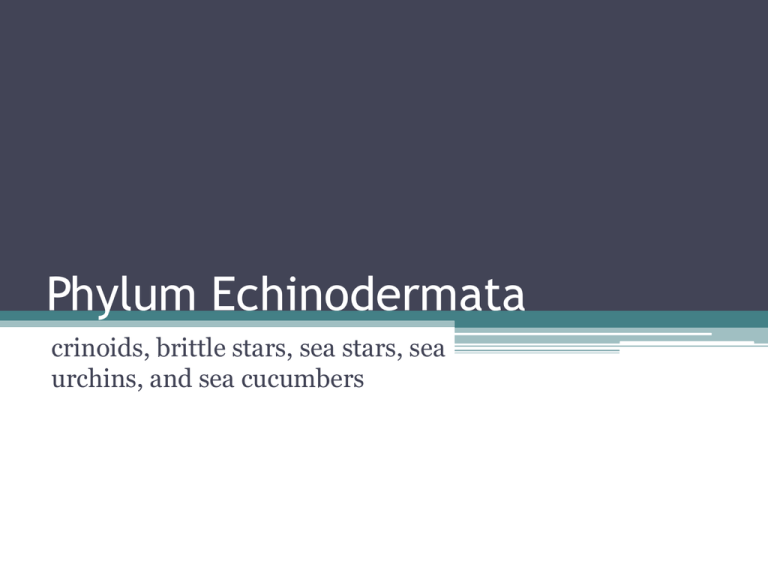
Phylum Echinodermata crinoids, brittle stars, sea stars, sea urchins, and sea cucumbers Critical Thinking All echinoderms require oxygen for respiration but they lack a respiratory system. As you learn about these interesting animals, figure out how they get the oxygen required for cellular respiration to occur. How is that linked to photosynthesis? Basic Characteristics • Symmetry ▫ All echinoderms have Radial Symmetry BUT… they develop from bilateral larvae • More closely related to Chordates than other Invertebrates ▫ Develop as deuterostomes rather than protostomes Basic Characteristics Cont’d • Endoskeleton ▫ Ossicles of calcium carbonate attached to spines or spicules Enchinoderm = “spiny skin” • Water Vascular System ▫ Water filled canals inside body • Tube Feet ▫ Small extensions of the water vascular system ▫ Aid in – feeding, movement, respiration, excretion Classification 7,000 species of echinoderms in 6 classes Class Crinoidea Sea Lily • Examples = crinoids ▫ Sea lilies, and feather stars • Minimal movement ▫ Some are sessile as adults = sea lilies • Tube feet serve as a respiratory surface Feather Star – Click Picture to See Video Class Ophiuroidea Basket Star • Name means “snake like” • Examples = basket stars and brittle stars • Largest Class ▫ Characterized by long narrow arms which allow quick movement Brittle Star Class Echinoidea • Name means “spinelike” • Example = Sea Urchins and Sand Dollars • Rigid exoskelton called a test ▫ Encloses the internal organs ▫ Sea Urchin Eating Click on the picture to view Sand Dollar Movement Class Holothuroidia • Name Means “water polyp” ▫ When their tentacles are extended they resemble the polyp form of some cnidarians • Examples = Sea Cucumbers • Live on the sea bottom ▫ Crawl and burrow into soft sediment • Eats by cleaning food off tentacles Class Asteroidia • Name Means “starlike” • Tube Feet are used in: ▫ Movement ▫ Capturing Prey ▫ Gas Exchange • Have TWO stomachs – Cardiac and Pyloric ▫ Digestion occurs in this order: Cardiac Stomach – Pyloric Stomach – Digestive Glands • Remarkable Regeneration
